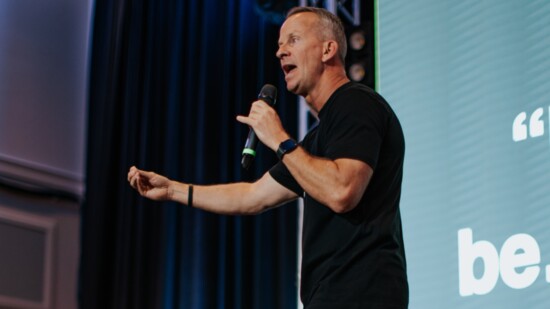1. What are some early warning signs that parents should watch for if they suspect their child is struggling with mental health issues?
Todd Sylvester: It's often tricky because we may not notice it right away. One of the most common signs is when you see a drop in your child's energy levels. Kids naturally have a lot of energy, so if they’re unusually tired or uninterested, something may be off. Another sign is when they’re not engaging in conversations, especially with family members. You might also notice their school performance slipping, or that they’re spending excessive hours on social media or video games. This could be a way for them to escape reality, so it's important to look out for these behavioral shifts.
2. You emphasize the power of belief systems. How can parents help their children develop healthier self-beliefs?
Todd Sylvester: Before addressing mental health topics with your child, you need to establish a strong relationship with them. One of the best ways to do this is by spending quality one-on-one time with each of your children. Take each child on a monthly individual date. Leave your phones in the car and just have a conversation. This dedicated time builds trust, so when you do bring up sensitive topics like mental health or self-belief, they’ll be more open to discussing them with you. Once that trust is there, you can guide them through exercises to build healthier belief systems.
3. If a parent notices a significant change in their child's behavior, what’s the best way to approach them without making them feel judged or defensive?
Todd Sylvester: Start by helping them identify the negative beliefs they’re internalizing. I use an exercise I call the "bully playlist," which focuses on the negative self-talk they might be experiencing. For instance, if they believe "I’m not smart," flip that narrative by creating a "champion playlist" with affirmations like "I am brilliant." Have them repeat it to themselves while looking in the mirror and truly feeling it. Then, visualize what it looks like to embody that belief in real-life scenarios. This process can significantly change their mindset and build self-confidence.
4. What are some specific questions parents can ask their children to start a conversation about mental health?
Todd Sylvester: The key is to approach these conversations with genuine curiosity rather than judgment. Build on your existing relationship with your child. Start with open-ended questions like, “How are you feeling today?” Don't shy away from more direct questions like, “Do you feel anxious or depressed?” Another powerful question is, “Do you feel seen and heard by me as your parent?” It can be uncomfortable to hear the answers, but these questions can open the door to deeper understanding and stronger communication.
5. For parents who feel overwhelmed, what advice do you offer to keep their own well-being in check while still being supportive?
Todd Sylvester: It’s essential to take care of yourself first if you want to be there for your children. I practice what I call my “hour of power” every morning, which focuses on mental and emotional health. By taking that time for myself, I show up better in every area of my life—whether it’s being a dad, a husband, or a coach. Parents need to find their own routines that help them de-stress and recharge. When kids see their parents prioritizing mental health, they’ll be more inclined to do the same for themselves.
6. What resources would you recommend for parents who are trying to improve their own mental health?
Todd Sylvester: It is all based on your own personal preferences. There are so many resources available. I enjoy Andrew Huberman’s podcast, “Huberman Lab,” as well as "The Holistic Psychologist." The key is to take one small action step at a time. Focus on getting just 1% better each day. It’s less overwhelming and can lead to significant progress over time.
7. Where can people find you?
Todd Sylvester: You can visit my website at toddinspires.com, where you can also access my podcast, Beliefcast, featuring interviews with inspiring individuals. I’m on all major podcast platforms. You can also find me on social media with the handle @tsinspires, as well as on LinkedIn and Facebook.
